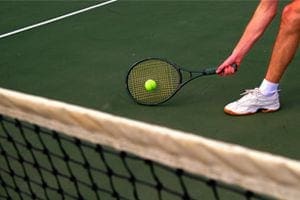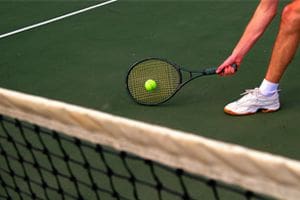statFor some women, it's about making an elegantement at special events or being a couple…

Chiropractic for Tennis Players
 Approximately 65% of the 15 million tennis players in the United States sustain at least one injury per year. Tennis is a sport that involves repetitive motions and ballistic movements. As such, the sport can create both local and systemic stresses on the body.
Approximately 65% of the 15 million tennis players in the United States sustain at least one injury per year. Tennis is a sport that involves repetitive motions and ballistic movements. As such, the sport can create both local and systemic stresses on the body.
For example, hard foot plants are associated with foot, ankle, and knee stress, but can also affect one entire side of the body, because of side-to-side forces and twisting motions. Continuous start and stop motions, accelerating and decelerating, overhead serves, and ground strokes can put significant stress on the knees, back, ankles, elbows and shoulders.
As you can imagine, injuries are common, even with highly-trained players. The most common injuries in players occur in the lower extremities, such as twisted ankles, Achilles tendonitis, “tennis leg”, which affects the gastrocnemius or calf muscle, and infrapatellar tendonitis, or “jumper’s knee”. One of the greatest causes of these injuries is rapid deceleration during the game. Tennis players put great force in one direction, and they suddenly have to stop it. That effort can lead to injury, in part because most tennis training techniques focus on acceleration, not deceleration. Tennis elbow is another common tennis injury, as well as injuries to the rotator cuff of the shoulder, and lower back pain. The racquet can travel at up to 300 miles per hour over a very short distance. Throwing the racquet overhead extends and stretches the shoulder muscles excessively over time, causing an imbalance in the shoulders.
Chiropractic treatment for tennis players focuses on both prevention and treatment of these injuries. Chiropractic care is an excellent choice for tennis players. Adjustments can be made regularly to prevent injury and are effective in treating problems as well. These adjustments may include manipulations of the neck, knee, spine, shoulder, ankle, and elbow. Additional treatments might include stretching exercises, laser therapy, massage, ultrasound, hot/cold treatments, and light therapy.
A chiropractor can also provide advice on proper shoes, movement mechanics, racquet size and selection, playing surfaces and support braces. A qualified practitioner can help tennis players play the game better, prevent injury, rehabilitate an existing injury, and get back on the court again.




